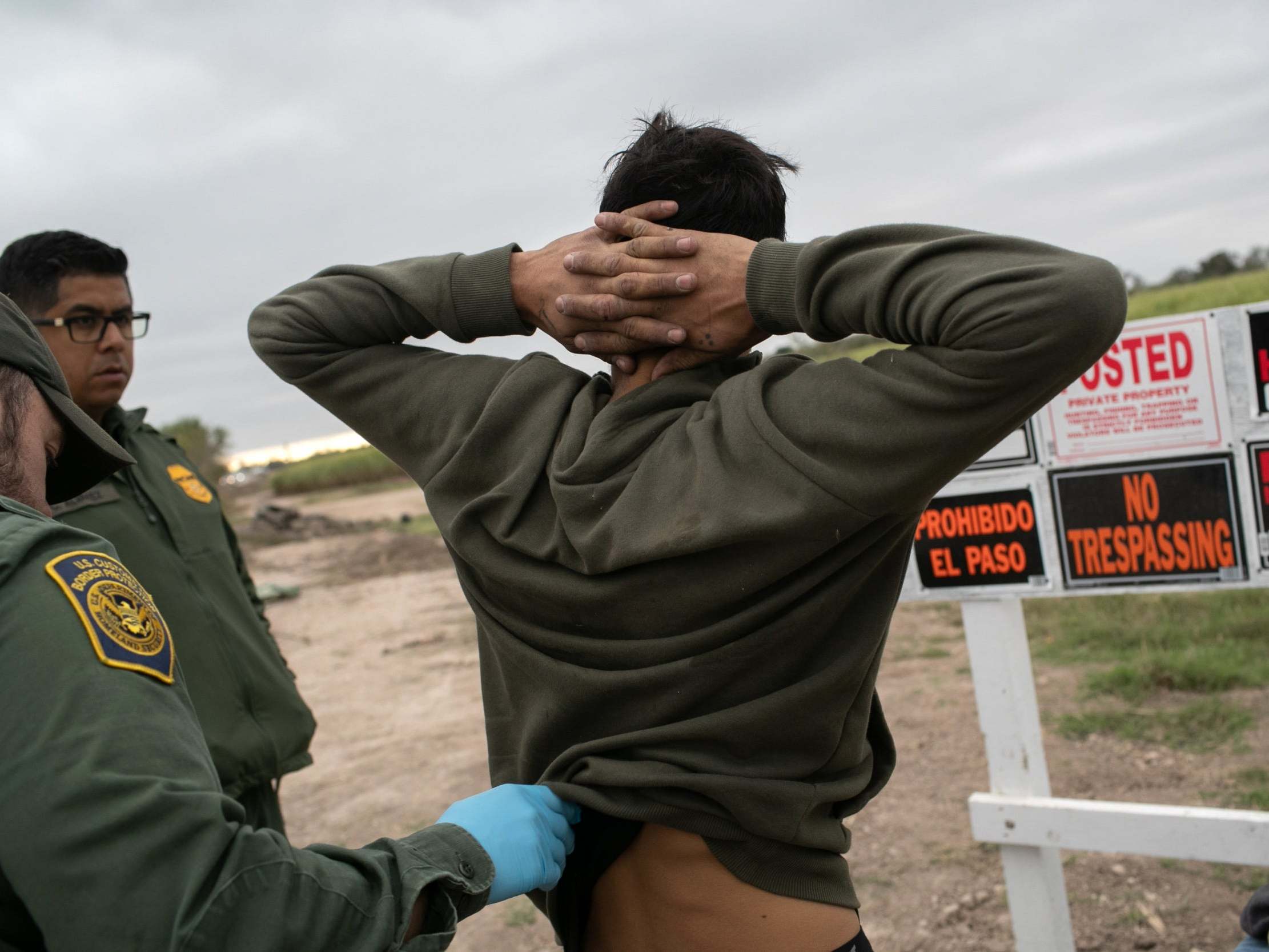Trump administration unveils plan to use coronavirus to limit asylums
Under the proposal, anyone who comes from a country with a coronavirus outbreak could be denied asylum simply on those bases

Your support helps us to tell the story
From reproductive rights to climate change to Big Tech, The Independent is on the ground when the story is developing. Whether it's investigating the financials of Elon Musk's pro-Trump PAC or producing our latest documentary, 'The A Word', which shines a light on the American women fighting for reproductive rights, we know how important it is to parse out the facts from the messaging.
At such a critical moment in US history, we need reporters on the ground. Your donation allows us to keep sending journalists to speak to both sides of the story.
The Independent is trusted by Americans across the entire political spectrum. And unlike many other quality news outlets, we choose not to lock Americans out of our reporting and analysis with paywalls. We believe quality journalism should be available to everyone, paid for by those who can afford it.
Your support makes all the difference.The Trump administration has unveiled a plan that would disqualify migrants from seeking refuge in the US if it determines they could spread contagious diseases in the country.
The proposed measure, revealed on Wednesday by the Departments of Justice and Homeland Security, would also give the federal government the power to deny other humanitarian protections to refugees, such as relief from deportation.
While current US laws allow government officials to prevent certain individuals from requesting asylum on the grounds of being a "danger to national security," this new measure would extend the definition of "danger" to include those who could spread infectious diseases such as coronavirus.
According to the document, migrants "whose entry would pose a risk of further spreading infectious or highly contagious illnesses or diseases, because of declared public health emergencies in the United States or because of conditions in their country of origin or point of embarkation to the United States, pose a significant danger to the security of the United States."
Under the proposal, those who exhibit "any contagious or infectious disease" of "public health significance," would automatically be ineligible for asylum.
This would mean that anyone who comes from a country with an outbreak could be denied asylum simply on those bases, violating the United Nation's protocol on refugees that dictates each case must be analysed individually. Border agents would be allowed to make this decision during the screening process, disqualifying migrants for asylum before they get to see a judge and present their case.
Those denied protection could still request their deportation be delayed under the United Nations Convention Against Torture. However, the qualifications needed for a migrant to qualify for this protection are stricter, and even if they fullfil them, the rule's draft leaves the door open for the federal government to deport these migrants to third countries instead of allowing them to stay in the US. The draft also does not limit this measure to the coronavirus pandemic, meaning the restrictions could remain even if or when the crisis passes.
Amnesty's America's Advocacy Director Charanya Krishnaswami said on Wednesday the proposal was "rooted in the xenophobic, counterfactual narrative that immigrants are vectors of disease."
The proposed regulation is just the latest in a series of moves by the Trump administration citing the coronavirus pandemic to curve both illegal and legal immigration. Earlier this week DHS also announced that foreign students on student visas will not be able to stay in the country if their universities move their classes exclusively online, which many schools, including Harvard, have already announced they will do for the upcoming Fall semester.
Additionally, since March the Trump administration has been citing orders by the Center for Disease Control and Prevention (CDC) to quickly expel both undocumented migrants and those seeking asylum at the US-Mexico border.
It's unclear when the measure would come into effect, but the public has 30 days to comment on it, and, like most of the Trump administration's recent moves on immigration, it is likely to be challenged in court.
Join our commenting forum
Join thought-provoking conversations, follow other Independent readers and see their replies
Comments